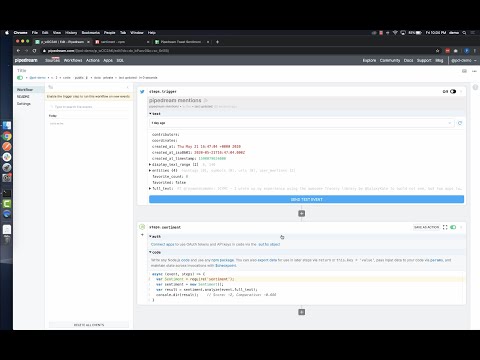What do you want to automate
with Google Sheets and Yespo?
Prompt, edit and deploy AI agents that connect to Google Sheets, Yespo and 3,000+ other apps in seconds.
Trusted by 1,000,000+ developers from startups to Fortune 500 companies
Popular Ways to Connect Google Sheets with Yespo#
Popular Google Sheets and Yespo Triggers#
Emit new event when a contact is added to a specific segment in Yespo.
Emit new event each time a comment is added to a spreadsheet.
Emit new event each time a row or rows are added to the bottom of a spreadsheet.
Popular Google Sheets and Yespo Actions#
Add a single row of data to Google Sheets. Optionally insert the row at a specific index (e.g., row 2 to insert after headers, shifting existing data down). See the documentation
Adds a new contact or updates an existing one. See the documentation
Add multiple rows of data to a Google Sheet. See the documentation
Get all values or values from a range of cells using A1 notation. See the documentation
Overview of Google Sheets#
The Google Sheets API allows for the creation, reading, updating, and deletion of data within Google Sheets, enabling a robust platform for spreadsheet management and data manipulation. Through Pipedream, you can craft serverless workflows that respond to various triggers, such as webhook events, emails, or scheduled times, to interact with Google Sheets. This synergy can automate reporting, synchronize data across applications, manage inventory, track leads in a CRM, or even conduct survey analysis by updating and retrieving sheet data on the fly.
Connect Google Sheets#
import { axios } from "@pipedream/platform"
export default defineComponent({
props: {
google_sheets: {
type: "app",
app: "google_sheets",
}
},
async run({steps, $}) {
return await axios($, {
url: `https://www.googleapis.com/oauth2/v1/userinfo`,
headers: {
Authorization: `Bearer ${this.google_sheets.$auth.oauth_access_token}`,
},
})
},
})
Overview of Yespo#
The Yespo API offers a platform for personalized customer engagement through multichannel marketing automation. By integrating Yespo with Pipedream, you can create custom workflows that trigger based on customer interactions or data changes. This allows for dynamic campaign management, customer segmentation, and real-time analytics, enabling you to automate and scale personalized marketing efforts efficiently.
Connect Yespo#
import { axios } from "@pipedream/platform"
export default defineComponent({
props: {
yespo: {
type: "app",
app: "yespo",
}
},
async run({steps, $}) {
return await axios($, {
url: `https://yespo.io/api/v1/account/info`,
headers: {
"Accept": `application/json; charset=UTF-8`,
},
auth: {
username: `x`,
password: `${this.yespo.$auth.api_key}`,
},
})
},
})
Related Videos#



Community Posts#


